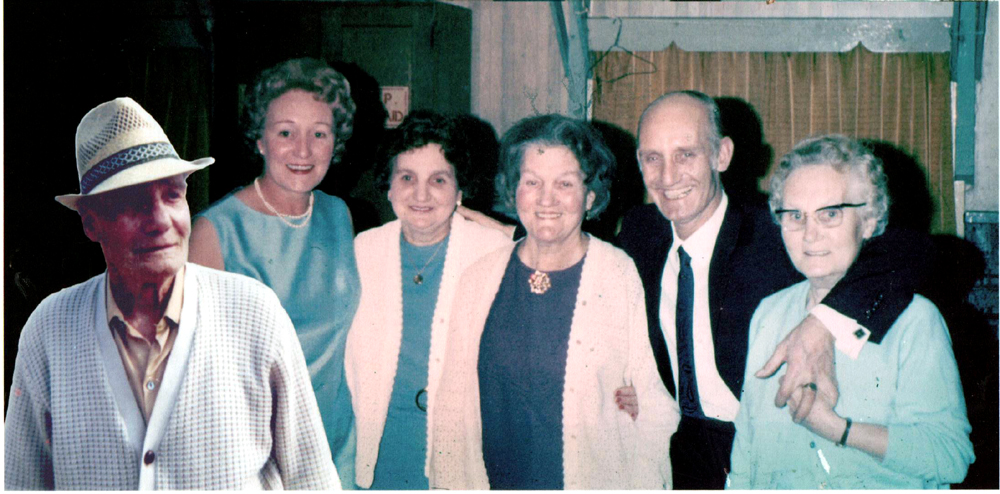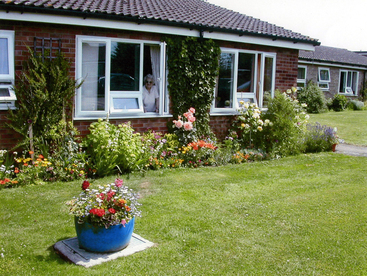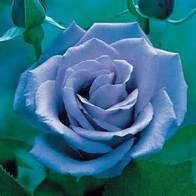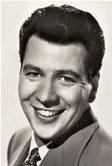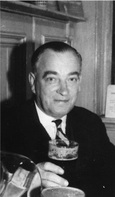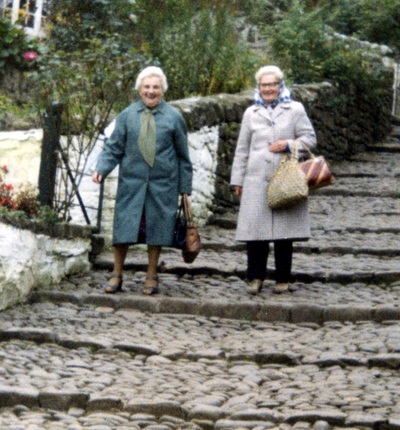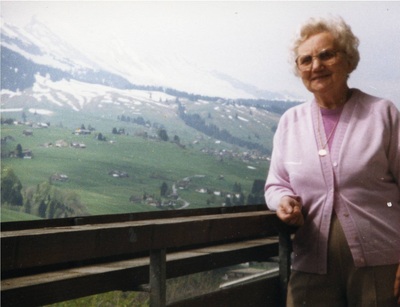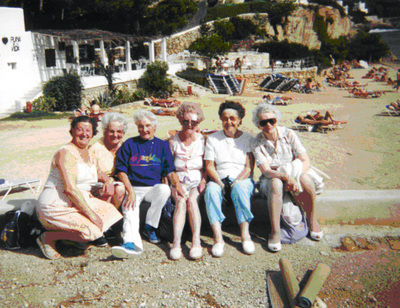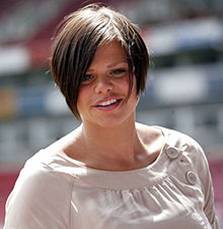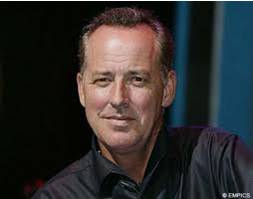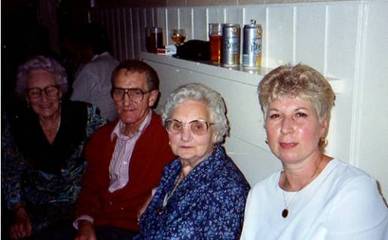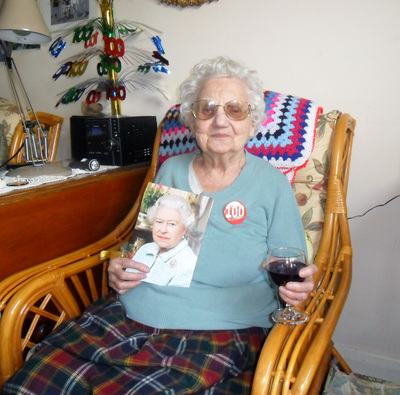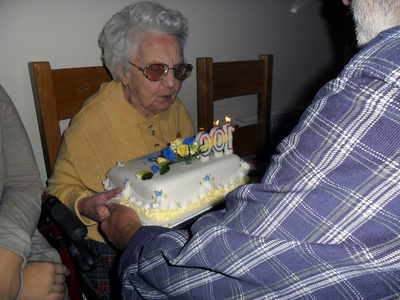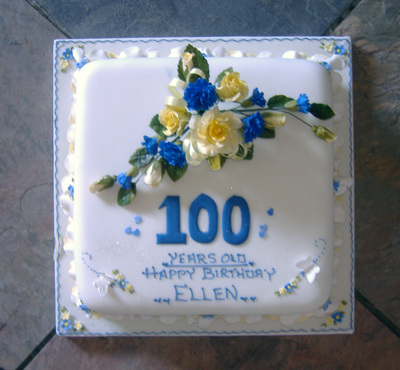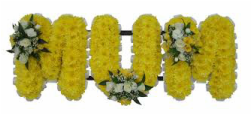Ellen's Story (click on a photo to enlarge it)
All who knew Ellen would say ‘what an amazing woman’ and they will go on saying that because she was amazing, and she was resourceful, proud and private.
Those that did get to know her are privileged to have known someone who reached the staggering age of 104 years. And, at that age, she still retained her clear mind, sense of humour and incredible memory.
She understood emails, the internet and texting. She loved doing puzzles and watching Mastermind. Soaps were not for her; give her a good football match or bowls game.
And she loved her garden at Mason Court, especially the Blue Moon rose.
Those that did get to know her are privileged to have known someone who reached the staggering age of 104 years. And, at that age, she still retained her clear mind, sense of humour and incredible memory.
She understood emails, the internet and texting. She loved doing puzzles and watching Mastermind. Soaps were not for her; give her a good football match or bowls game.
And she loved her garden at Mason Court, especially the Blue Moon rose.
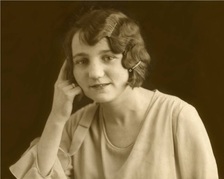
Ellen was born on 16th September 1910 in Swan Street, Great Dover Street, Bermondsey, South London, to Ada and Fred Miller. This is her story:
I was their fifth child. The eldest was my brother, also named Fred, who was born in 1898. While mum was pregnant with me, one of my sisters, Ellen, who was three years old at the time, caught measles and died. Mum had two other daughters: Ada, born 1900; Sofe, born 1906. When I was born my mother named me Ellen, after my sister who had died, but I too, like her, was referred to as Nellie, which I have never liked. I was joined later by another sister, Rose, who was born in 1914 and then another brother, Charlie, who was born in 1919.
My dad worked in Great Dover Street, South London at Waygood Otis (the famous innovators of lifts) during the First World War (1914-18) and had suffered a stroke that left him unable to use his left arm and had also left him with paralysis of his spine, making him appear to be hunch-backed. He died in 1922 from another stroke when I was 12 years old. My brother, Fred carried him down the stairs of our house on his back to the waiting ambulance and my younger brother, Charlie, who was 3 years old, stood and watched his father go, never to see him again.
I am now living in a self-contained 4-roomed flat in a very sheltered accommodation in Stowupland, Suffolk. My eyesight and hearing have deteriorated but I have carers to prepare my meals three times a day and give me my medication, even doing my eye drops for me; something I used to do myself until I moved here nearly a year ago. They also do my washing and my cleaning. My mind is clear and I am told by my doctor that my heart and blood pressure are remarkable. I also heal very quickly. This was most noticeable when I cut my head on the corner of a kitchen cupboard in Mason Court, Mendlesham. Many who saw the gash thought the worst, but, to the amazement of the local doctor (Paul Head), it healed up quickly with no after affects.
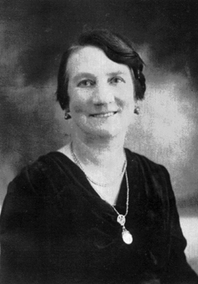 Ada Miller nee Cowley (mum)
Ada Miller nee Cowley (mum)
Background
My mother, in 1901, worked in a laundry in Old Kent Road. She had one brother, Jim and three sisters, Ethel, Amy, Nancy and Nell. Her maiden name was Cowley. Anne (Nancy) and Ellen (Nell) both married into the Maltby family, Ethel married a Collette and Amy married a Marshall.
My dad, Fred, came from Fore Street, Edmonton, North London. He had one brother, Jim, and two sisters, Nell and Sophie. Nell married a Potts but Sophie didn’t marry and lived in Fore Street until her death.
I have already mentioned my start in life in Swan Street, growing up with five brothers and sisters in a very small house, although brother Fred joined the Navy in 1914 at the start of the First World War, he was 16 and I was 4 years old, so that was one less in the house for a few years.
1919 -1939 Between the Wars
I went to Kirby Street School, Bermondsey and was a Girl Guide in Arthur's Mission.
My mother worked in the pub across the road, the Drum, and it was next door to Albin the Undertakers (they were featured in a TV programme a few years ago); we have all been buried by Albins.
Leaving school at 14, I had to find work. My mother took me to the Labour Exchange and she told them I would like to learn a trade. They said there was a job in the City learning the fur trade, a reasonable trade in those days. My mother took me to the firm and they told her that if I took the job, in 5 years I would be earning a good wage. (I worked in the fur trade until I was over 70 years old!) I took the job and went from firm to firm learning the trade. My wage was 5 shillings a week; that was a lot of money by comparison with other workers, and I used to work on Sundays for 5 shillings for just 3 hours! (This was in 1924 and comes to 25p at just over 8p per hour but would be £37.50 today, which is £12.50 per hour).
My mother, in 1901, worked in a laundry in Old Kent Road. She had one brother, Jim and three sisters, Ethel, Amy, Nancy and Nell. Her maiden name was Cowley. Anne (Nancy) and Ellen (Nell) both married into the Maltby family, Ethel married a Collette and Amy married a Marshall.
My dad, Fred, came from Fore Street, Edmonton, North London. He had one brother, Jim, and two sisters, Nell and Sophie. Nell married a Potts but Sophie didn’t marry and lived in Fore Street until her death.
I have already mentioned my start in life in Swan Street, growing up with five brothers and sisters in a very small house, although brother Fred joined the Navy in 1914 at the start of the First World War, he was 16 and I was 4 years old, so that was one less in the house for a few years.
1919 -1939 Between the Wars
I went to Kirby Street School, Bermondsey and was a Girl Guide in Arthur's Mission.
My mother worked in the pub across the road, the Drum, and it was next door to Albin the Undertakers (they were featured in a TV programme a few years ago); we have all been buried by Albins.
Leaving school at 14, I had to find work. My mother took me to the Labour Exchange and she told them I would like to learn a trade. They said there was a job in the City learning the fur trade, a reasonable trade in those days. My mother took me to the firm and they told her that if I took the job, in 5 years I would be earning a good wage. (I worked in the fur trade until I was over 70 years old!) I took the job and went from firm to firm learning the trade. My wage was 5 shillings a week; that was a lot of money by comparison with other workers, and I used to work on Sundays for 5 shillings for just 3 hours! (This was in 1924 and comes to 25p at just over 8p per hour but would be £37.50 today, which is £12.50 per hour).
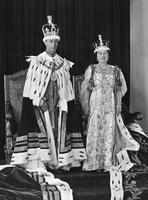
One of my jobs was to sew the ermine edging to the Queen mum’s corination gown.
In the meantime, my sister Sofe was seeing Charlie James, whose father had a boot repair shop in Fair Street, Bermondsey, they also sold sweets and ice cream. I used to take notes to Charlie from my sister Sofe and it was there that I met his brother, Alf, who used to help his father in the shop. Alf was a twin to another brother, Arthur. I then got to see Alf sometimes; he would meet me from work. When his father died, Mrs James had to sell the shop. She found a room for herself and told the twins, Alf and Arthur, and their younger sister Lou, to find somewhere to live. She didn't want to know where. The twin boys were 15 years old and Lou, their sister, was 13. The nine James children were, Joseph, George, Charlie, Alf, Arthur, Lou, Emma, Rose and Sarah. Joseph was killed in WW1 in France when just 18 years old.
In the meantime, my sister Sofe was seeing Charlie James, whose father had a boot repair shop in Fair Street, Bermondsey, they also sold sweets and ice cream. I used to take notes to Charlie from my sister Sofe and it was there that I met his brother, Alf, who used to help his father in the shop. Alf was a twin to another brother, Arthur. I then got to see Alf sometimes; he would meet me from work. When his father died, Mrs James had to sell the shop. She found a room for herself and told the twins, Alf and Arthur, and their younger sister Lou, to find somewhere to live. She didn't want to know where. The twin boys were 15 years old and Lou, their sister, was 13. The nine James children were, Joseph, George, Charlie, Alf, Arthur, Lou, Emma, Rose and Sarah. Joseph was killed in WW1 in France when just 18 years old.
 Arthur & Alf (sitting)
Arthur & Alf (sitting)
The boys found a room in Tanner Street, Bermondsey where the lady would do their washing but nothing else. Their sister, Lou went to stay with her other sister, Em, who lived in Rotherhithe. But Mrs James came and found them both and, for some reason, set about Em with a bag of wooden clothes pegs and this was enough to split them up and drive Lou away.
My mother Ada, on the other hand, took my sister Rose and me to a music teacher in Tooley Street to learn the piano. Rose attended more often than me and she became quite good. I continued until I met Alf, then I gave up. I should mention that Alf was an outstandingly natural pianist who could play for hours, as he often did when in a social gathering. He played mostly stride style piano. He could also play the clarinet, banjo and harmonica. And he was a gifted artist.
My mother Ada, on the other hand, took my sister Rose and me to a music teacher in Tooley Street to learn the piano. Rose attended more often than me and she became quite good. I continued until I met Alf, then I gave up. I should mention that Alf was an outstandingly natural pianist who could play for hours, as he often did when in a social gathering. He played mostly stride style piano. He could also play the clarinet, banjo and harmonica. And he was a gifted artist.
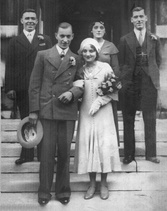 Bill Stone, Alf, me, Lou James, Jack Nisbett
Bill Stone, Alf, me, Lou James, Jack Nisbett
I started walking out with Alf and we got married in Sept 1933 and moved into a flat in Guinness Buildings, near Tooley Street, Bermondsey and my first son John was born in 1935.
Being pregnant with John, I worked until I was 4 months and I was very well although I was under 7 stone. Two days before he was born I had great pains - labour had started; the midwife came but she couldn't do anything to ease the pain and it was getting worse. The midwife went and got a nurse from Guys Hospital but still nothing. Eventually they called a doctor but he was worried as, in those days, it wasn’t unusual for young people to die giving birth. The doctor returned to Guys and brought another doctor (who was big, with ginger hair and big hands), he brought with him a lot of lights and some machine. I should have been in hospital but I was so ill by now they couldn't take me down the stairs from the 4th floor to an ambulance. The doctor told me he would make me go to sleep and would wake me up to see a lovely baby. He put something over my mouth. I don't know what happened next but when I came round there was George Bonnist (My sister Rose’s husband) at my bedside with tears in his eyes. The nurse showed me John but I couldn't hold him as I was strapped up like a chicken. As I couldn't move, my sister Sofe, who had given birth to Beryl a week before John was born had plenty of milk to feed her, so she gave John some of her milk before we put him on a bottle. (It was understood at that time that a woman who gives birth to a daughter can provide her milk to a boy of a different mother).
John was 7.5lbs at birth but he had a lump on his head and his ear was screwed up but it all got better. After a few days I got much better and my mother, who had the flat above me, was very helpful and so was my sister Sofe. They told me that Alf and George took it in turns to sit with me when I was unconscious. When John was 2 years old we had a letter to move to Mottingham but Alf wouldn't move. Sofe and her husband, Alf Wiltshire, had moved there a year before. John was nearly 5 years old before I had another son, Roy. Sofe, by then, had given birth to Rose, Marge, Beryl and Kenny.
Alf joined the Fire Service in 1939 and there was talk about war with Germany. My sister Rose lived in Devon Mansions in Tooley Street, Bermondsey with her husband George Bonnist. They had no children; George told Rose he didn't want any after seeing me so ill when having John.
Being pregnant with John, I worked until I was 4 months and I was very well although I was under 7 stone. Two days before he was born I had great pains - labour had started; the midwife came but she couldn't do anything to ease the pain and it was getting worse. The midwife went and got a nurse from Guys Hospital but still nothing. Eventually they called a doctor but he was worried as, in those days, it wasn’t unusual for young people to die giving birth. The doctor returned to Guys and brought another doctor (who was big, with ginger hair and big hands), he brought with him a lot of lights and some machine. I should have been in hospital but I was so ill by now they couldn't take me down the stairs from the 4th floor to an ambulance. The doctor told me he would make me go to sleep and would wake me up to see a lovely baby. He put something over my mouth. I don't know what happened next but when I came round there was George Bonnist (My sister Rose’s husband) at my bedside with tears in his eyes. The nurse showed me John but I couldn't hold him as I was strapped up like a chicken. As I couldn't move, my sister Sofe, who had given birth to Beryl a week before John was born had plenty of milk to feed her, so she gave John some of her milk before we put him on a bottle. (It was understood at that time that a woman who gives birth to a daughter can provide her milk to a boy of a different mother).
John was 7.5lbs at birth but he had a lump on his head and his ear was screwed up but it all got better. After a few days I got much better and my mother, who had the flat above me, was very helpful and so was my sister Sofe. They told me that Alf and George took it in turns to sit with me when I was unconscious. When John was 2 years old we had a letter to move to Mottingham but Alf wouldn't move. Sofe and her husband, Alf Wiltshire, had moved there a year before. John was nearly 5 years old before I had another son, Roy. Sofe, by then, had given birth to Rose, Marge, Beryl and Kenny.
Alf joined the Fire Service in 1939 and there was talk about war with Germany. My sister Rose lived in Devon Mansions in Tooley Street, Bermondsey with her husband George Bonnist. They had no children; George told Rose he didn't want any after seeing me so ill when having John.
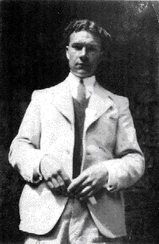 George Bonnist
George Bonnist
1939 - 1945 The Second World War
War was declared and we were on rations. George joined the Ambulance Service and I was expecting Roy, who was born in January 1940. On Roy's 2nd birthday we moved to a house in Layard Road, Bermondsey but it wasn't safe as the bombing was getting worse. At that time, George became ill and being we were at war we couldn't get a doctor or an ambulance. The bombs were falling in the area, killing hundreds, so I ran all the way to St. Olive's Hospital, Rotherhithe for an ambulance for George (2 miles). But they wouldn't come out as they were attending to people who had been injured by the bombing. I ran back towards home and a warden came out of an air-raid shelter to stop me but he helped and together we got George to Guy's Hospital, but George died when we got there. He was 29 years old. He had meningitis. Rose moved to Guinness Buildings. We didn't see much of Alf as the bombing was getting worse and he was based in central London where many of the bombs fell.
Rationing was tough and there wasn't a lot to buy but a man who had a little shop in Tower Bridge Road used to give extra rations for children and old people. His name was Cohen. He and his family now own a lot of supermarkets under the name of Tesco.
Sister Ada was in a cottage in Wiltshire and expecting a baby. She got me a place there with my two boys. Her daughter Nancy also came down with her little girl, Pat. But we weren’t in Wiltshire long.
The war got worse so we moved to Hungerford, West Berkshire where Ada had moved with her seven children and was expecting Ernie.
War was declared and we were on rations. George joined the Ambulance Service and I was expecting Roy, who was born in January 1940. On Roy's 2nd birthday we moved to a house in Layard Road, Bermondsey but it wasn't safe as the bombing was getting worse. At that time, George became ill and being we were at war we couldn't get a doctor or an ambulance. The bombs were falling in the area, killing hundreds, so I ran all the way to St. Olive's Hospital, Rotherhithe for an ambulance for George (2 miles). But they wouldn't come out as they were attending to people who had been injured by the bombing. I ran back towards home and a warden came out of an air-raid shelter to stop me but he helped and together we got George to Guy's Hospital, but George died when we got there. He was 29 years old. He had meningitis. Rose moved to Guinness Buildings. We didn't see much of Alf as the bombing was getting worse and he was based in central London where many of the bombs fell.
Rationing was tough and there wasn't a lot to buy but a man who had a little shop in Tower Bridge Road used to give extra rations for children and old people. His name was Cohen. He and his family now own a lot of supermarkets under the name of Tesco.
Sister Ada was in a cottage in Wiltshire and expecting a baby. She got me a place there with my two boys. Her daughter Nancy also came down with her little girl, Pat. But we weren’t in Wiltshire long.
The war got worse so we moved to Hungerford, West Berkshire where Ada had moved with her seven children and was expecting Ernie.
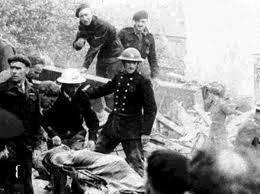 AFS helping during the London Blitz
AFS helping during the London Blitz
Alf had a friend in the Fire Service whose family was staying in the Forest of Dean, in a village called Lydney. We moved there and the lady, Mrs Wetherall had three children; girls Jean and Kay and a son Clive. Kay was a lovely cook and made excellent cakes. Her husband was serving nine months in jail for bigamy.
I had a letter from Alf to say the Guinness block of flats where my mother lived had been bombed to the ground with 13 dead and many injured. My mother had left the flat only 10 minutes before to see her daughter Rose in Kirby Street. She was very lucky but they caught the blast and had to go to Guy's Hospital to have glass taken out of their head.
Mum came to Lydney for a week as she had no home and Rose had to go and work for the war effort as she had no children. It was at work that Rose met Tony Gervasi, a Swiss who couldn't be called up as his country wasn't at war. Rose and Tony married and moved to Guinness Buildings in Brixton where they had two children, Maria and Susan. Tony was a chef in a big hotel and he promised Rose a big house when things got better but he was very mean to her and they didn't move. He changed jobs to become a hairdresser on cruise liners, and travelled all over the world. He died going to work on a bus.
My mother was allocated another flat in Guinness Buildings, Snowsfields on a temporary basis and she used to visit us every Sunday for dinner.
I had a letter from Alf to say the Guinness block of flats where my mother lived had been bombed to the ground with 13 dead and many injured. My mother had left the flat only 10 minutes before to see her daughter Rose in Kirby Street. She was very lucky but they caught the blast and had to go to Guy's Hospital to have glass taken out of their head.
Mum came to Lydney for a week as she had no home and Rose had to go and work for the war effort as she had no children. It was at work that Rose met Tony Gervasi, a Swiss who couldn't be called up as his country wasn't at war. Rose and Tony married and moved to Guinness Buildings in Brixton where they had two children, Maria and Susan. Tony was a chef in a big hotel and he promised Rose a big house when things got better but he was very mean to her and they didn't move. He changed jobs to become a hairdresser on cruise liners, and travelled all over the world. He died going to work on a bus.
My mother was allocated another flat in Guinness Buildings, Snowsfields on a temporary basis and she used to visit us every Sunday for dinner.
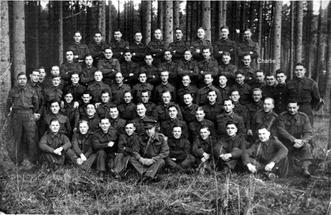 Prisoners-of-War (Charlie far right, 2nd row down)
Prisoners-of-War (Charlie far right, 2nd row down)
My brother, Charlie was called up and after 6 weeks in the army was sent to France but the raids were still bad and he was taken prisoner by the Germans at Dunkirk. We never knew what happened to him. After a few months my mother had a letter from the War Office to say he was missing believed killed but my mother wouldn't believe it. It was a couple of years before the Red Cross and the Salvation Army found him. I used to go all the way to Baker Street with parcels for him via the Red Cross. When the war ended, Charlie came home after being held for five and a half years in a prisoner of war camp. But his home had been bombed so Charlie went to mum's flat but found that she also had no real home.
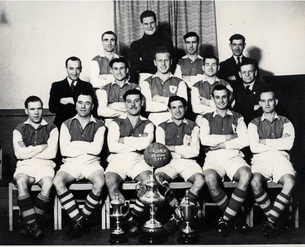 Lion FC
Lion FC
After the war
After the war Alf had started a football club, Lions, and they were very good.
In the 1949-50 season, Lions Football Club were Bermondsey Cup winners, 1st Division Champions and the Streatham League Challenge Cup Winners.
In the above photo, Alf is far left second row, my brother Charlie is far right bottom row. Also in the photo is Alf’s brother Charlie and his two nephews James and Ron along with my cousin Bill.
After the war Alf had started a football club, Lions, and they were very good.
In the 1949-50 season, Lions Football Club were Bermondsey Cup winners, 1st Division Champions and the Streatham League Challenge Cup Winners.
In the above photo, Alf is far left second row, my brother Charlie is far right bottom row. Also in the photo is Alf’s brother Charlie and his two nephews James and Ron along with my cousin Bill.
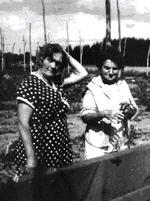 Sister Ada and I at a hop farm in Kent.
Sister Ada and I at a hop farm in Kent.
My mother eventually was offered another flat in Guinness Buildings and everybody went back to work. Alf left the Fire Service and went to work at Butler's Wharf as a printer. John also worked there as the tea shipment supervisor. The house in Layard Road was not the same; it was blasted by the bombs and needed lots of repairs but the landlord wouldn't do anything. After a while the landlord asked us for £160 for the house, which was a lot of money. We bought the house but couldn't afford to do a lot of the repairs.
Some years we would go ‘hopping’ – picking hops in Kent for a brewery. Great fun!
Some years we would go ‘hopping’ – picking hops in Kent for a brewery. Great fun!
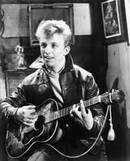 Tommy Steele
Tommy Steele
Rock ‘n Roll singer,
Tommy (Hicks) Steele
lived close by in Frean Street.
Tommy (Hicks) Steele
lived close by in Frean Street.
John married Jean in 1957. John had the flat upstairs in our house. Jean wanted children but they tried without success, then after nine years she had Andrew but couldn't have any more. Alf bought a car and we used to go to the coast for a caravan holiday. Then we bought our own caravan in Whitstable and used to go there for holidays. Roy married a local girl, Rita in 1961 and later had a son Martin and they all would to visit us at the caravan. We had some good times at Whitstable until 1969 when Alf was taken ill and went into hospital on the 9th Feb and, on the 5th March, he died, he was 59.
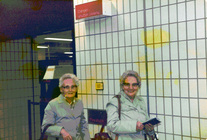 Arriving in Los Angeles with sister Sofe
Arriving in Los Angeles with sister Sofe
I sold the caravan and Alf’s car but couldn't get a pension as I was working. In the meantime we heard that the houses in Layard Road were due to be pulled down to make way for flats in a couple of years. The council bought the house by compulsory purchase in 1982 (I was 72) but the money paid wasn't enough for me to buy another one. John and Jean were living with us in Layard Road and they had to approach the council to get other accommodation.
I moved to a flat in Woking but didn't like it so ended up back in Bermondsey via a short stay in Bromley. I lived at 9 Weller House off Jamaica Road (the London Marathon runs along there) and I was still working in the fur trade. I made lots of friends there and went on some lovely holidays.
It was back in Bermondsey that I got to know the families of TV Reality Star, Jade Goody and the well-known entertainer, Michael Barrymore.
Roy and Rita had two more children, Hayley and Tamby but then they split up and Roy eventually went to live in Suffolk with his new wife Cheryl. They persuaded me to move to the village of Mendlesham, where they were living. I did so in 1994 after having lived in South London for most of my 84 years.
John and Jean were renting a council flat in Southwark Park Road, Bermondsey and I missed seeing John and Jean regularly and their son, Andrew. And knowing that Jean was very ill made it more difficult for me to make the decision to move away. Looking back, it is a decision that I regret.
John’s wife Jean died 25th May, 1996 from breast cancer aged just 59. John continued to live in their flat in Bermondsey until he died on April 12th 2009, he was 74.
John and Jean were renting a council flat in Southwark Park Road, Bermondsey and I missed seeing John and Jean regularly and their son, Andrew. And knowing that Jean was very ill made it more difficult for me to make the decision to move away. Looking back, it is a decision that I regret.
John’s wife Jean died 25th May, 1996 from breast cancer aged just 59. John continued to live in their flat in Bermondsey until he died on April 12th 2009, he was 74.
All of my brothers and sisters have died, as have lots of their children and my friends.
I reached my 100th birthday on 16th Sept 2010 and was still living in Mason Court, Mendlesham.
I am now, in Steeple View, Stowupland. Moved here on Sunday 30th October, 2011 aged 101.
How I Live My Life
I can’t say how I have managed to live this long, all I can say is that, when I was young, we didn’t have much money and food was scarce.
We would have bread and dripping, or bread and sugar with the odd treat of condensed milk or dipping a finger into chocolate powder.
There was nowhere to store food, no fridge or freezer, we just had a scullery where everyone would wash. One sink for everything. The single toilet was outside and the bath was a metal tub that we would fill up from the Ascot heater. One bath would make do for everyone. Personal and household hygiene was not an issue. We had disinfectant and Jeyes Fluid for the toilet, but that was it. Nothing like it is today with the vast range of cleaning products and the extreme stories about germs and such like. Perhaps I have developed a natural defence against germs and diseases because I seldom become ill and I heal very quickly if I get a cut or bruise.
I always eat what is put before me, no waste, clear my plate.
However, what do I eat?
Water - over a litre a day
Red wine - one glass with my main meal
Tea - about five cups a day with no sugar and little milk
Garlic - in tablet or salt form
Onions - yes
Wholemeal bread - yes
Ginger - yes
Fruit - daily
Manuka honey - daily
Cod liver oil capsules - daily
Animal fat - no
Sugar - no
Exercise - daily
How I Live My Life
I can’t say how I have managed to live this long, all I can say is that, when I was young, we didn’t have much money and food was scarce.
We would have bread and dripping, or bread and sugar with the odd treat of condensed milk or dipping a finger into chocolate powder.
There was nowhere to store food, no fridge or freezer, we just had a scullery where everyone would wash. One sink for everything. The single toilet was outside and the bath was a metal tub that we would fill up from the Ascot heater. One bath would make do for everyone. Personal and household hygiene was not an issue. We had disinfectant and Jeyes Fluid for the toilet, but that was it. Nothing like it is today with the vast range of cleaning products and the extreme stories about germs and such like. Perhaps I have developed a natural defence against germs and diseases because I seldom become ill and I heal very quickly if I get a cut or bruise.
I always eat what is put before me, no waste, clear my plate.
However, what do I eat?
Water - over a litre a day
Red wine - one glass with my main meal
Tea - about five cups a day with no sugar and little milk
Garlic - in tablet or salt form
Onions - yes
Wholemeal bread - yes
Ginger - yes
Fruit - daily
Manuka honey - daily
Cod liver oil capsules - daily
Animal fat - no
Sugar - no
Exercise - daily
The story above was written and told to me, Roy, in 2009 when mum was living in Mason Court, Mendlesham. I edited a few parts but not very much, it is mainly Ellen's words throughout and was updated over the next three years.
Ellen died, aged 104 years, in her flat in Steeple View on December 14th at 9:30pm. Susan and I was with her through her last hours.
She received fantastic care and support from all at Steeple View during her last years, her family couldn't have asked for more.
Ellen was cremated at Bury St Edmunds crematorium on 24th December at 12 noon. In attendance were Roy and his Partner Susan, Josie Logan (Ellen's neice) and John Skelton (son of Ellen's neice Marie).
In accordance with her wishes there was no religious service or flowers and the only music played was 'What is life without thee' sung by Kathleen Farrier.
Ellen died, aged 104 years, in her flat in Steeple View on December 14th at 9:30pm. Susan and I was with her through her last hours.
She received fantastic care and support from all at Steeple View during her last years, her family couldn't have asked for more.
Ellen was cremated at Bury St Edmunds crematorium on 24th December at 12 noon. In attendance were Roy and his Partner Susan, Josie Logan (Ellen's neice) and John Skelton (son of Ellen's neice Marie).
In accordance with her wishes there was no religious service or flowers and the only music played was 'What is life without thee' sung by Kathleen Farrier.
